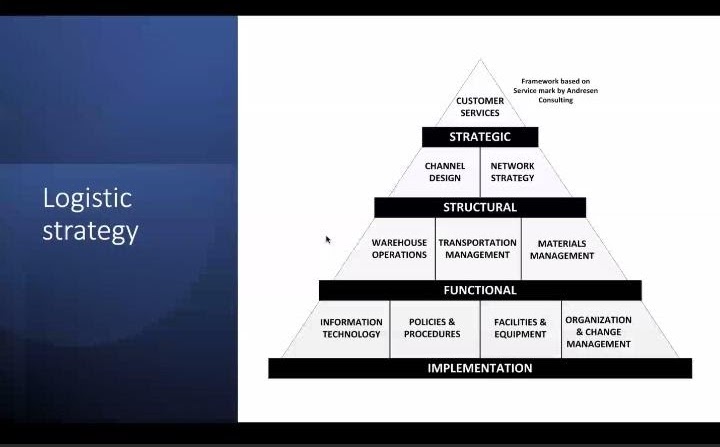Image illustration – teamciso.com
On 30/01/2021, SBM ITB collaborated with QUINE Corporation in holding the webinar on the logistics condition in Indonesia and its relationship with Japan. In the first session, the explanation was explained by Dr. Eng. Nur Budi Mulyono, ST, MT, as the representative of SBM ITB. Mr. Nur Budi explained more about the logistics strategy in Indonesia and what strategy to use in facing the Pandemic COVID-19.
Logistics is one of the important aspects in a country, it is related to the operation process such as transportation, inventory, packaging, supplies, and sometimes, social security and warehousing. In Indonesia itself, the vision of a national logistic system is locally integrated and globally connected for national competitiveness and social welfare, and the integration system can develop global relations with other countries. The vision will be running with key drivers that national logistics focused on such as key commodities, human resources development, logistic infrastructure development, ICT implementation, logistic service provider enhancement, and harmonization of regulation and policy.
This vision is also not that easy to achieve, some challenges and problems occur in the national logistics. The challenges occurred in several fields such as port (productivity, capacity, and integrated management), road (user discipline and unrepaired damages at some parts), train (single tracks, rescheduling and maintenance, and container tracks), river and sea (fleet rejuvenation – modernization repairs and brand image), multimodal (transit warehouse) and information systems (reliability and data integration).
What is the logistics strategy? National logistics in Indonesia make use of the framework of Anderson Consulting and other possible frameworks. According to the framework, national logistics focuses on 4 parts: the strategy itself, structural, functional, and implementation. As shown in the picture below, the strategy of national logistics is increasing the quality of customer service by structuring the channel design and network strategy.n

Besides that, the national logistics has the 7R as the principle system in executing activities. The 7R comprises the right product, right customer, right time, right place, right condition, right quantity, and right cost. In other words, national logistics requires the right data and information at the right moment, time, and place to provide the best services to customers.
“The best strategy on national logistics is to improve the quality of customer service. We must have a good relationship with our customers, knowing what their needs are and knowing how to build trust with customers.” Mr. Nur Budi Mulyono said in the middle of the webinar.
During the pandemic, additional challenges occur on the logistic aspects such as limited movement, limited number of public transports in operation, new policies on health protocols, limited fuel subsidies, and increasing costs of management, tax, and also debt. Therefore, the national logistics requires the strategy in facing the challenges with three phases, namely lockdown, pre-new normal, and new normal. In the lockdown phase, the national logistics focuses on managing all parts of the operation while increasing customers’ relation. The second phase is executed by creating crisis scenarios and driving to digitalization also strengthening the supplier global network. The last phase is the new normal that focuses on creating a new business model. The implementation of the strategy also considers the health protocols.
Besides that, the national logistics already created 7 innovations to combat covid-19, such as remote site support, contactless scanning, disinfection robots, trailer (un)loading robots, automated warehousing, lifting and pushing exoskeletons, and virus detection scanning.
Indonesia Logistics with QUINE Corp.
QUINE is an NTT DATA 100% owned business consulting firm. QUINIE joined NTT Group as a “business innovation partner” by working with clients in a broad range of business challenges. This company already existed in Indonesia, with headquarters in Jakarta. According to the QUINE Corporation, the reason why QUINE Corp., the company from Japan choosing Indonesia as their business partner is because Indonesia is the No.1 GDP, population, resources and having a strategic geography in ASEAN which constitutes a good business opportunity in the logistic aspect.




